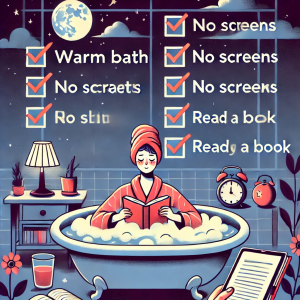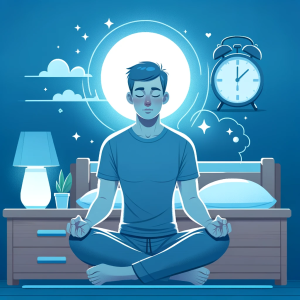In this guide, we will explore the essential aspects of sleep optimization to help you achieve the restful nights you deserve and the energized days you desire. Sleep is a fundamental pillar of health and wellness, yet many of us struggle to get the quality sleep we need. This guide is designed to provide you with practical, science-backed tips and strategies to improve your sleep and, in turn, your overall well-being.

Understanding Sleep Cycles and Their Importance
To optimize your sleep, it’s crucial to understand the different stages of the sleep cycle. There are four main stages: NREM (Non-REM) sleep stages 1-3 and REM (Rapid Eye Movement) sleep. Each stage plays a unique role in maintaining your physical and mental health. NREM stages 1-2 are light sleep phases, stage 3 is deep sleep, and REM is when dreaming occurs and memory consolidation happens. Ensuring you go through these stages multiple times a night is vital for restorative sleep.

Creating the Perfect Sleep Environment
Your sleep environment significantly impacts the quality of your rest. Start by ensuring your bedroom is cool, quiet, and dark. Invest in a comfortable mattress and pillows, and consider using blackout curtains to eliminate light. White noise machines or earplugs can help drown out disruptive sounds. Declutter your bedroom to create a serene and calming space, making it conducive to relaxation and sleep.
Daily Habits for Better Sleep
Incorporating healthy daily habits can dramatically improve your sleep quality. Establish a consistent sleep schedule by going to bed and waking up at the same time every day, even on weekends. Engage in regular physical activity, but avoid vigorous exercise close to bedtime. Exposure to natural sunlight during the day helps regulate your circadian rhythm, making it easier to fall asleep at night. Additionally, develop a relaxing bedtime routine, such as reading, taking a warm bath, or practicing gentle yoga.
Nutrition and Sleep: What to Eat and Avoid
What you eat and drink can affect your sleep. Avoid caffeine and nicotine in the hours leading up to bedtime, as they are stimulants that can interfere with your ability to fall asleep. Alcohol, while it might make you feel drowsy initially, can disrupt your sleep cycle later in the night. Instead, opt for sleep-friendly foods like cherries, almonds, and chamomile tea, which contain natural compounds that promote relaxation and sleep.

Managing Stress and Anxiety for Restful Sleep
Stress and anxiety are common culprits of sleep disturbances. Implementing stress management techniques can help you unwind before bed. Practice mindfulness meditation, deep breathing exercises, or progressive muscle relaxation to calm your mind and body. Journaling your thoughts and worries before bed can also help clear your mind, making it easier to drift off to sleep.
Natural Remedies and Sleep Aids
If you struggle with sleep despite making lifestyle changes, natural remedies and sleep aids might help. Herbal teas like chamomile, valerian root, and lavender can promote relaxation. Supplements such as melatonin can be effective for some people, but it’s essential to consult with a healthcare provider before starting any new supplement. Aromatherapy with essential oils like lavender and eucalyptus can also create a calming atmosphere conducive to sleep.

The Impact of Technology on Sleep
Technology can be a double-edged sword when it comes to sleep. The blue light emitted by screens can interfere with the production of melatonin, the hormone that regulates sleep. To minimize the impact, avoid screens at least an hour before bed. Use features like night mode or blue light filters on your devices if you must use them in the evening. Establish a tech-free zone in your bedroom to create a space dedicated solely to rest.
Special Tips for Shift Workers
Shift work can pose unique challenges to maintaining a healthy sleep schedule. If you work irregular hours, try to keep your sleep environment as consistent as possible. Use blackout curtains to simulate nighttime during the day, and stick to a regular sleep routine, even on days off. Prioritize naps if you can’t get a full night’s sleep, and communicate with your employer about your need for rest breaks during long shifts.

Conclusion: Embracing the Power of Sleep
Optimizing your sleep is a powerful step towards enhancing your overall health and well-being. By understanding the science of sleep, creating a conducive environment, adopting healthy daily habits, and managing stress, you can significantly improve your sleep quality. Remember, good sleep is not a luxury but a necessity for a vibrant and energized life. Embrace these strategies and experience the transformative power of restful nights and refreshed mornings.
Dr. Amanda Green is an expert in stress management and sexual health education, holding a Ph.D. in Psychology. She has dedicated her career to helping individuals manage stress to improve their overall well-being and intimate relationships. Dr. Green offers workshops and private consultations that teach mindfulness and relaxation techniques specifically designed to reduce stress and enhance sexual intimacy.


